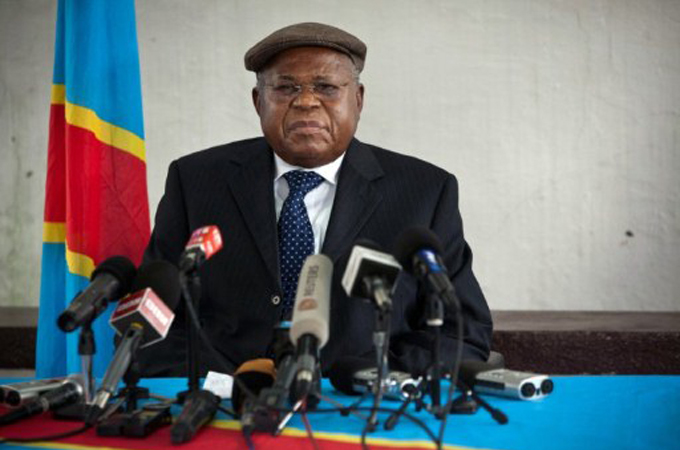DR Congo police crush opposition ceremony
Tear gas used on supporters of Etienne Tshisekedi, who planned to declare himself president despite losing election.

 |
| Etienne Tshisekedi disputes the re-election of President Joseph Kabila in the November 28 vote [AFP] |
Security forces in Democratic Republic of Congo (DRC) have squashed an attempt by top opposition figure Etienne Tshisekedi to swear himself in as president despite officially losing recent a contested recent election.
Riot trucks loaded with police carrying tear-gas grenade launchers and rifles zoomed through the streets of Kinshasa, the capital, on Friday while tanks and heavily armed republican guards were deployed inside the stadium grounds where Tshisekedi had planned his rival swearing-in ceremony.
Outside the stadium, hundreds of Tshisekedi supporters in small groups threw rocks at security forces before being pushed into backstreets by tear gas in a cat-and-mouse battle. Police arrested dozens of people. There was no sign of serious injuries, a witness told the Reuters news agency.
Charles Bisengimana, the DRC’s chief of police, said the opposition Union for Democracy and Social Progress (UDSP) party had not been granted permission to protest and that security forces were attempting to keep the peace.
“We received no notification of a protest from UDPS so police are maintaining public order so people can go about their business,” Bisengimana said.
Poll disputed
Tshisekedi disputes the re-election of President Joseph Kabila in a November 28 vote that the opposition rejected as fraudulent and international observers criticised for procedural chaos and irregularities.
Election results showed Kabila with 49 per cent, and Tshisekedi with 32 percent of the nearly 19 million votes cast.
Kabila was sworn in for a new term on December 20, in a heavily guarded ceremony which was attended by only one foreign head of state, Zimbabwe’s President Robert Mugabe.
Ambassadors from the United States, France and the United Kingdom were present, though Washington and the European Union had rapped Congo’s Supreme Court for ratifying Kabila’s victory without fully addressing evidence of irregularities.
The election was the second since a 1998-2003 war that killed more than 5 million people, and was meant to shore up the country’s fragile gains in stability.
Human Rights Watch has said more than 40 people have been killed in election-related violence. The government has disputed the claim, citing a lack of evidence.